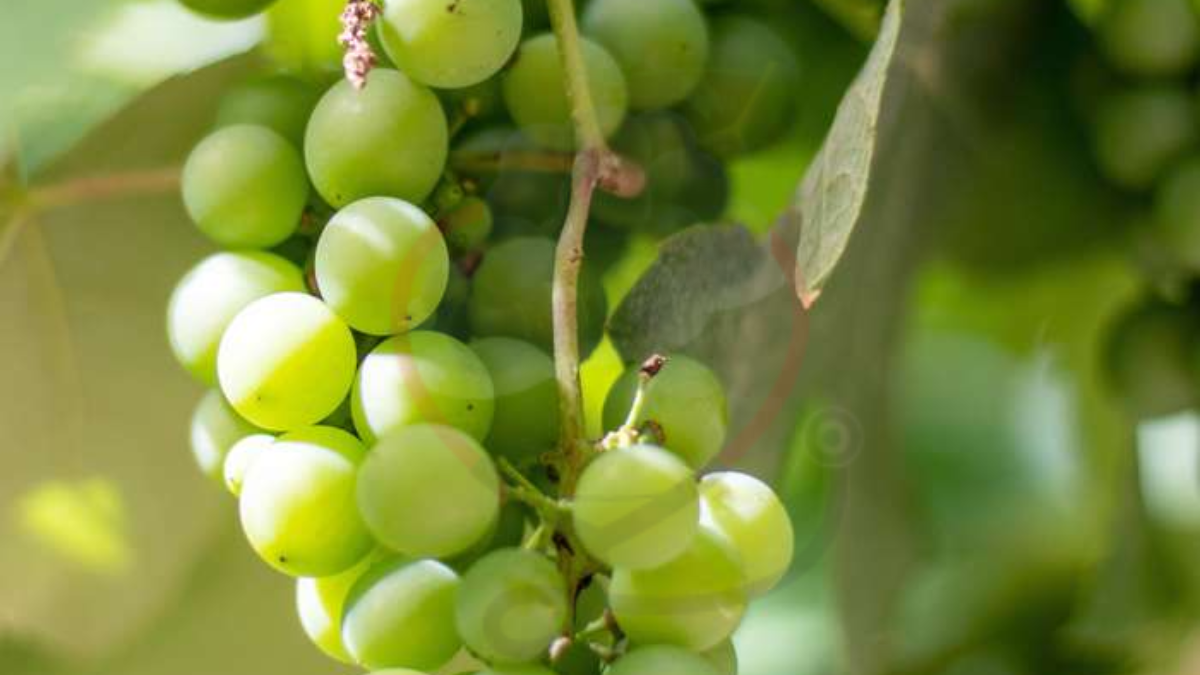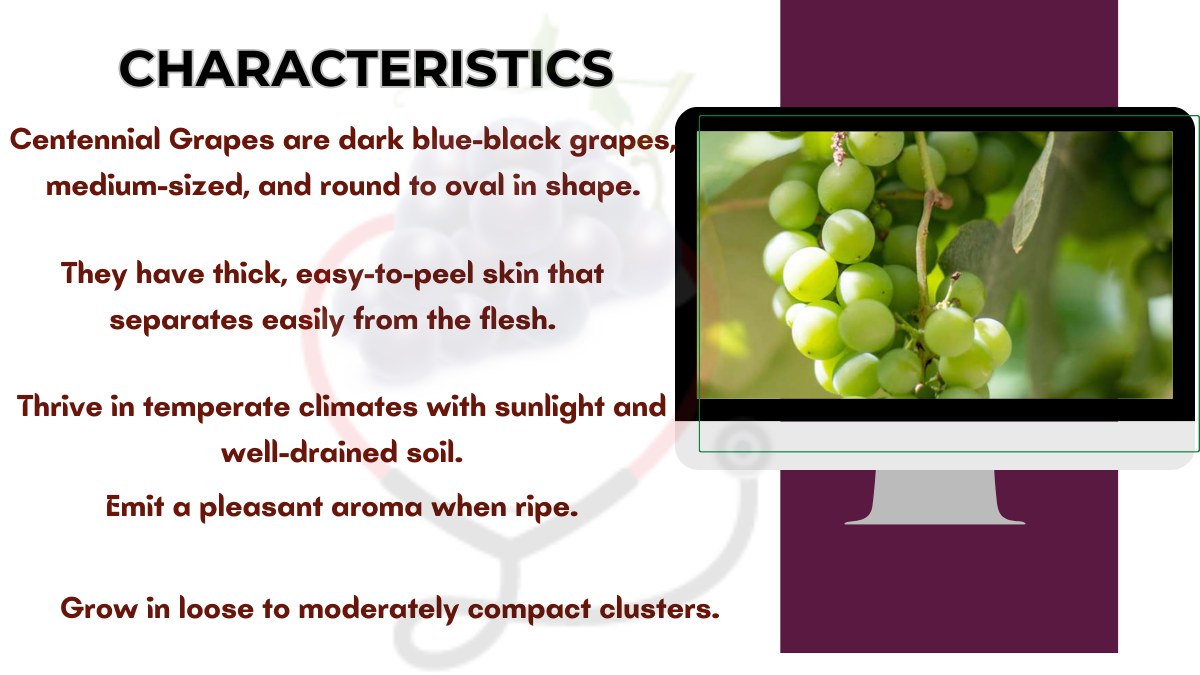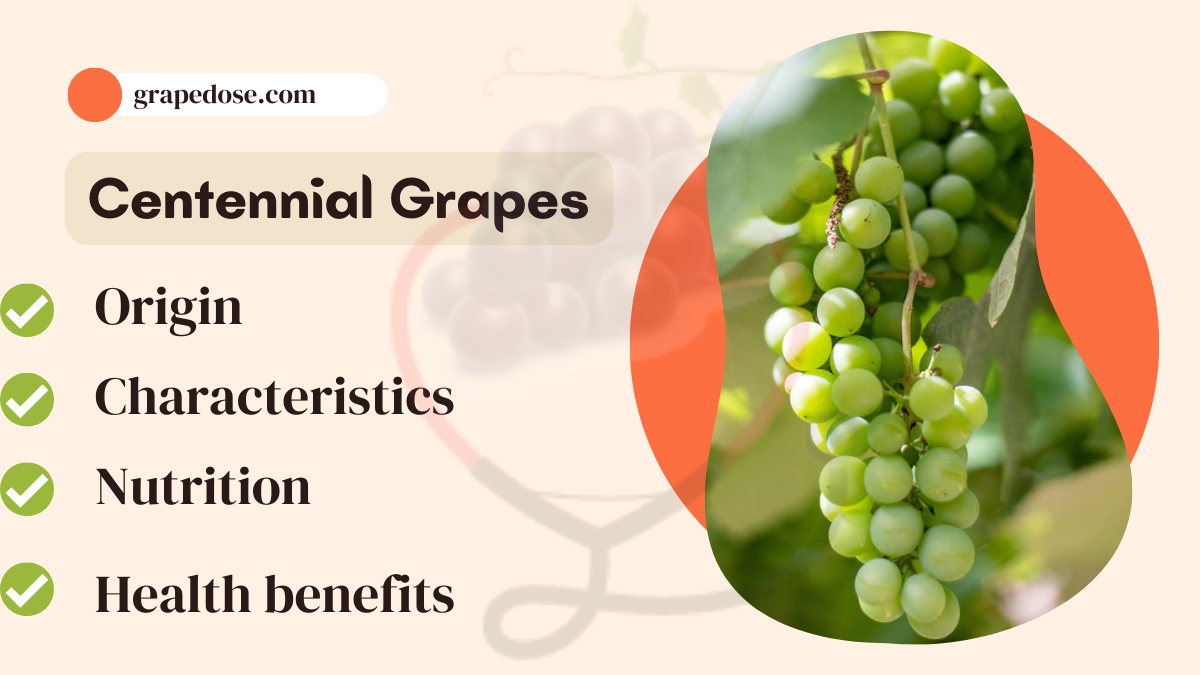Centennial grapes are also known as Concord grapes. They have a long history dating back over a century.
They are famous for their intense flavor and versatility, and have been used in winemaking, cooking, and as a healthy snack. [1]
Centennial grapes are a dark purple color and have a firm, juicy flesh. They are seedless, which makes them easy to eat and a popular choice for children.

The grapes have a strong, musky flavor that is often described as being similar to Concord grape jelly.
In this article, we’ll delve into the fascinating world of Centennial Grapes, exploring their origins, unique characteristics, culinary applications, and health benefits.
Origin of Centennial Grapes
Centennial Grapes, scientifically known as Vitis labrusca, are native to the United States.
They were first discovered in Concord, Massachusetts, in the mid-19th century by Ephraim Wales Bull.
Concord Grapes gained widespread popularity when they were used to make the famous Concord grape jelly.
This product quickly became a household favorite and remains a pantry staple to this day.
Characteristics of Centennial Grapes

- Centennial Grapes are dark blue-black grapes, medium-sized, and round to oval in shape.
- They have thick, easy-to-peel skin that separates easily from the flesh.
- Known for a unique sweet-tart flavor with a rich grape taste.
- Emit a pleasant aroma when ripe.
- Grow in loose to moderately compact clusters.
- Thrive in temperate climates with sunlight and well-drained soil.
- Typically harvested in late summer to early fall, depending on the region.
Nutritional Values of Centennial Grapes
- Calories: 2%
- Carbohydrates: 3%
- Dietary Fiber: 1%
- Sugars: 3%
- Vitamin C: 3%
- Vitamin K: 1%
- Vitamin B6: 1%
- Potassium: 2%
Culinary Uses
1: Grape Juice
Centennial Grapes are a popular choice for making grape juice, known for its rich and robust flavor.
2: Wine Production
The grapes are also widely used in winemaking, particularly in the production of Concord wine, which offers a unique, fruity taste.
3: Culinary Delights
Centennial Grapes can be incorporated into various dishes, such as salads, tarts, and desserts, to add a burst of flavor.
Health Benefits of Centennial Grapes

1: Antioxidant Powerhouse
These grapes are packed with antioxidants, [2] particularly resveratrol, which may help promote heart health.
2: Rich in Nutrients
Centennial Grapes are a good source of essential vitamins and minerals, [3] including vitamin C and potassium.
3: Digestive Health
The high fiber content of Centennial Grapes can aid in digestion and promote a healthy gut. [4]
4: Skin Health
Antioxidants in the grapes may help maintain healthy skin by reducing signs of aging and protecting against UV damage. [5]
5: Bone Health
Centennial Grapes contain vitamin K, which is essential for bone health and may help improve bone density. [6]
Centennial Grapes, with their rich history, distinctive flavor, and health benefits, continue to captivate the taste buds of many.
Whether you savor them fresh, use them in your culinary creations, or enjoy them in a glass of wine, Centennial Grapes are a true culinary delight.
FAQs
Are Centennial Grapes the same as Concord Grapes?
No, Centennial Grapes are another name for Concord Grapes. They are the same variety.
Can I grow Centennial Grapes in my backyard?
Yes, Centennial Grapes are relatively easy to cultivate in your home garden.
Are Concord Grapes good for making wine?
Absolutely! Concord Grapes are a popular choice for making fruity and flavorful wine.
How do I store Centennial Grapes to keep them fresh?
Store them in a cool, dry place or in the refrigerator to prolong their freshness.
Are there any side effects of consuming Centennial Grapes?
Centennial Grapes are generally safe to eat, but consuming them in excess may lead to digestive discomfort due to their high fiber content.

